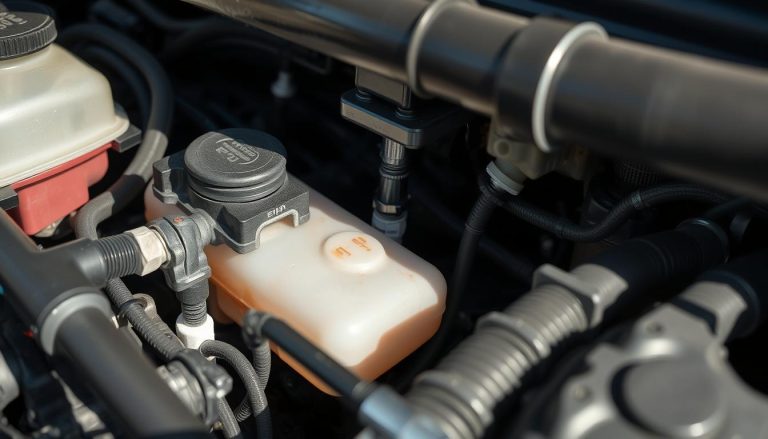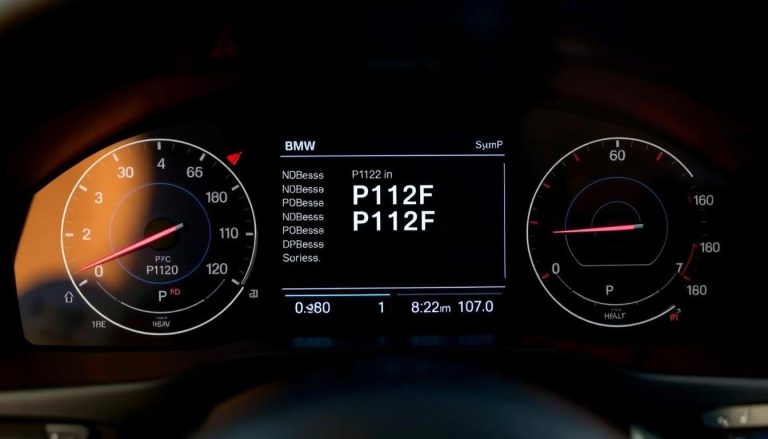If you’ve ever come across the P0177 code while monitoring your vehicle’s health, you might be feeling a mix of confusion and concern. The P0177 code relates to the fuel composition sensor circuit, highlighting potential issues that could affect how your engine runs.
Let’s delve into what this code means, explore its symptoms and causes, and uncover ways to get your vehicle back on track.
Key Takeaway
The P0177 code signals a fuel composition sensor circuit issue. This alert indicates that your vehicle’s engine control unit (ECU) is detecting an abnormal range or performance from the fuel composition sensor.
Addressing this problem promptly can prevent further complications, such as decreased fuel efficiency and increased emissions.
Being aware of this code empowers you to take action before the situation escalates. Ignoring it could lead to costly repairs down the line.
Understanding how to diagnose and fix issues related to the P0177 code will keep your car running smoothly. Monitoring your vehicle’s health can help maintain optimal performance and safety on the road.
What does the P0177 code mean?
The P0177 code indicates an issue with the fuel composition sensor circuit’s range or performance. This diagnostic trouble code (DTC) is triggered when the Engine Control Module (ECM) detects that the sensor’s output isn’t within its expected parameters.
Essentially, it means your vehicle’s system is having trouble accurately gauging the ethanol content in the fuel mix. This can lead to suboptimal engine performance and increased emissions.
When this code appears, it’s often a sign of potential problems affecting fuel efficiency. Ignoring it could result in more serious issues down the road, as well as potential damage to other components. The ECM relies on accurate data from this sensor to optimize air-fuel ratios for efficient combustion and overall engine health.
What are the common symptoms of a P0177 code?
When the P0177 code triggers, your vehicle may start showing some noticeable signs:
- Poor engine performance. This can manifest as sluggish acceleration or rough idling.
- Decreased fuel efficiency. If you find yourself visiting the gas station more often, it might be time to investigate the issue further.
- A check engine light illuminating on your dashboard.
- Unusual odors from the exhaust could arise. A sweet smell might suggest improper combustion due to fuel composition issues.
- Stalling during operation can occur if the engine loses power unexpectedly.
What causes a P0177 code?
The P0177 code can arise from several underlying issues :
- A faulty fuel composition sensor itself. If it’s not working properly, it will send incorrect readings to the engine control unit (ECU).
- Damaged wires can lead to poor performance of the entire circuit.
Problems within the ECU or software glitches might also be involved. - Aftermarket equipment
- Faulty secondary ignition components
How is a P0177 code diagnosed?
Diagnosing a P0177 code involves a systematic approach. Technicians often start with a thorough visual inspection of the fuel composition sensor and related wiring. They look for signs of wear, corrosion, or loose connections.
Next, they’ll use an OBD-II scanner to retrieve the trouble codes stored in the vehicle’s computer. This helps confirm that P0177 is present and may reveal any additional codes that could provide further insight.
The technician usually conducts tests on the fuel composition sensor itself. This might include checking its voltage output while analyzing engine conditions like temperature and load.
If necessary, they’ll also evaluate other components within the fuel system. These can include injectors and filters to ensure everything operates as intended.
This diagnostic process ensures accurate identification of problems before moving forward with repairs or replacements.
Is the P0177 code specific to certain car makes or models?
The P0177 code is not limited to specific car makes or models. It can manifest in a variety of vehicles, particularly those with flex-fuel capabilities. The fuel composition sensor is used across many brands, which means this issue can appear in various contexts.
However, some manufacturers may experience this problem more frequently than others due to design differences or how the sensors are integrated into their systems.
Regardless of brand, age matters too; older vehicles might have different wiring and sensor technologies that could lead to unique challenges when diagnosing issues related to the P0177 code.
Always refer to your vehicle’s service manual for detailed guidance tailored specifically for your model if you suspect this trouble code has appeared in your diagnostics.
Can I continue driving with the P0177 code?
Driving with a P0177 code is not advisable. This code indicates an issue with the fuel composition sensor, affecting how your engine performs.
While you may feel tempted to ignore it, doing so can lead to more significant problems down the road. A faulty sensor could cause poor fuel efficiency or even damage other engine components.
Additionally, the check engine light will likely remain illuminated. This can mask other potential issues that might arise in your vehicle.
If you notice any unusual symptoms while driving—like rough idling or decreased power—it’s wise to pull over and assess the situation. Ignoring these signs might put both your safety and wallet at risk.
It’s best to get a professional diagnosis as soon as possible if this trouble code appears on your dashboard.
How do I fix a P0177 – Fuel Composition Sensor Circuit Range/Performance ?
Fixing a P0177 code typically begins with diagnosing the fuel composition sensor. This component measures the ethanol content in gasoline mixtures. If it’s faulty, replacing it is often necessary.
Next, inspect wiring and connections related to the sensor. Damaged wires or corroded connectors can cause performance issues. Repair any faults you find.
In some cases, software updates for your vehicle’s engine control module may be required. Check with your dealer to see if there are any recalls or technical service bulletins addressing this issue.
After repairs, clear the codes using an OBD-II scanner and take your car for a test drive. Monitor for recurring issues as they may indicate deeper problems within the fuel system or other components that need attention.
How much does it cost to fix a P0177 code?
The cost to fix a P0177 code can vary widely. On average, you might find yourself spending between $100 and $300 for diagnostics and repairs.
Factors influencing the overall price include your vehicle’s make and model, along with local labor rates. If the issue is minor, like a faulty sensor connection or wiring problem, costs may lean towards the lower end of that spectrum.
However, if you’re facing more significant issues such as a defective fuel composition sensor or even problems within the engine management system, expenses could increase considerably. Parts alone can range from $50 to over $200 depending on quality and availability.
It’s wise to get multiple quotes from trusted mechanics before committing to any repairs. This ensures you receive fair pricing based on potential solutions tailored specifically for your vehicle’s needs.
Are there any other codes that may be related to a P0177 code?
When dealing with the P0177 code, it’s essential to be aware of other diagnostic trouble codes that may arise. Codes such as P0171 (System Too Lean) and P0172 (System Too Rich) can often appear alongside P0177. These codes indicate issues with fuel mixture or air-fuel ratio, which could further complicate your vehicle’s performance.
Additionally, you might encounter codes like P0135 or P0141 related to oxygen sensor malfunctions. Since these sensors play a crucial role in monitoring fuel composition and emissions, their failure may directly impact your vehicle’s efficiency.
It’s wise to address any associated codes promptly. Ignoring them can lead to more significant problems down the line, affecting engine performance and increasing repair costs. Always consult a professional mechanic for accurate diagnosis and repairs if you suspect multiple issues are at play.
Understanding all potential related codes will help ensure your car runs smoothly while saving time and money in the long run.


